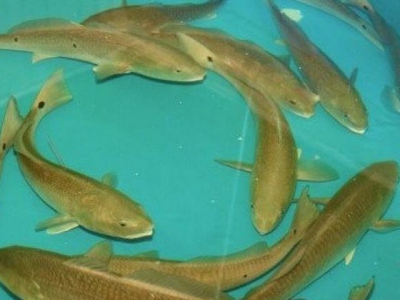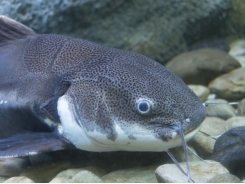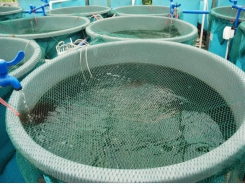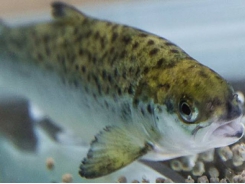Research targets domestic production of marine fish

While the U.S. has the capacity to meet domestic demand for seafood by expanding aquaculture in federal waters and land-based recirculating systems, the warmwater finfish aquaculture industry is struggling to grow and is unable to fill the demand for high-quality fish products, according to an announcement from Florida Atlantic University (FAU) in Boca Raton, Fla.
Research team will develop novel technologies to supply warmwater marine fish seedstocks.
Scientists from the FAU Harbor Branch Oceanographic Institute, one of the university’s four research pillars, will partner with future scientists of the U.S. Department of Agriculture's Agricultural Research Service (ARS) to address this problem. This year, the FAU institute received $2.4 million from USDA to help initiate a project that will boost the nation’s aquaculture industry.
The partnership will include FAU’s Harbor Branch faculty — who are "uniquely skilled" in warmwater finfish research and development — and the ARS National Program for Aquaculture, whose mission is to conduct research and deliver technologies that improve domestic aquaculture production efficiency and product quality while minimizing effects on natural resources.
Harbor Branch will host three new USDA scientists on its campus who have expertise in genetics, fish nutrition and health to develop novel technologies that will ensure a steady supply of warmwater marine fish seedstocks optimized for commercial production, FAU said.
“Expanding domestic aquaculture production through science-based use of our natural resources will provide healthy protein sources to help meet the seafood demands of a growing global population while enhancing rural economies,” Caird Rexroad, ARS national program leader for aquaculture, said.
FAU said the key objective of the project is to develop year-round spawning strategies for captive broodstock and larviculture methods for seed production of marine finfish. In addition, the scientists will develop methods for genetic improvement of warmwater marine finfish for optimum production efficiency. This approach will help increase profitability and ensure environmental sustainability by producing less waste, posing less risk of disease and using feed more efficiently.
One of the primary obstacles in expanding aquaculture is the U.S. is the availability of juveniles needed to supply growout operations, FAU said. Small farms and small producers have difficulty maintaining broodstock, larviculture and juvenile production because they require facilities and resources that can provide substantial production output in order to be economical. Moreover, they need highly skilled, technically savvy personnel, which requires higher salaries. All of these challenges pose both economic and technical burdens on aquaculture producers, the university said.
“Aquaculture producers need access to seedstocks for breeding purposes that are available year-round and optimized for the production environment,” said project director Dr. Paul Wills, research professor and associate director for research at FAU Harbor Branch. “We need to develop seedstocks that are bred for maximum production efficiency and have minimal impacts on the environment and native populations. Our research in genetics, fish health, nutrition, reproductive biology and physiology will contribute to developing these seedstocks that meet these criteria.”
Focused on improving market competitiveness for domestic aquaculture producers, the Harbor Branch project will initially focus on Florida pompano (Trachinotus carolinus) and red drum (Sciaenops ocellatus) as model species for improvement. Wills, his FAU colleagues and ARS collaborators will conduct research related to reproduction, nutrition and fish health to improve reliability and efficiency of seedstock production.
The team will develop selective breeding methods for genetic improvement of warmwater marine finfish for optimum production efficiency in a variety of warmwater marine aquaculture systems, the university said. Broodstock and breeding programs will be a key strategy for increasing sustainable food production.
“With declining fisheries and the need to feed close to 10 billion people by 2050, it is projected that global aquaculture production will need to more than double in the next 40 years,” FAU Harbor Branch executive director Dr. James Sullivan said. “We are excited about the support we have received from USDA to enable us to continue our research in aquaculture — the fastest-growing sector of agriculture. This important industry is providing solutions for food needs and preserving the world’s fisheries.”
Related news
Tools

Phối trộn thức ăn chăn nuôi

Pha dung dịch thủy canh

Định mức cho tôm ăn

Phối trộn phân bón NPK

Xác định tỷ lệ tôm sống

Chuyển đổi đơn vị phân bón

Xác định công suất sục khí

Chuyển đổi đơn vị tôm

Tính diện tích nhà kính

Tính thể tích ao




 New study sheds light on how tilapia lake…
New study sheds light on how tilapia lake…  Zinc, omega-3 fatty acids influence salmon health
Zinc, omega-3 fatty acids influence salmon health